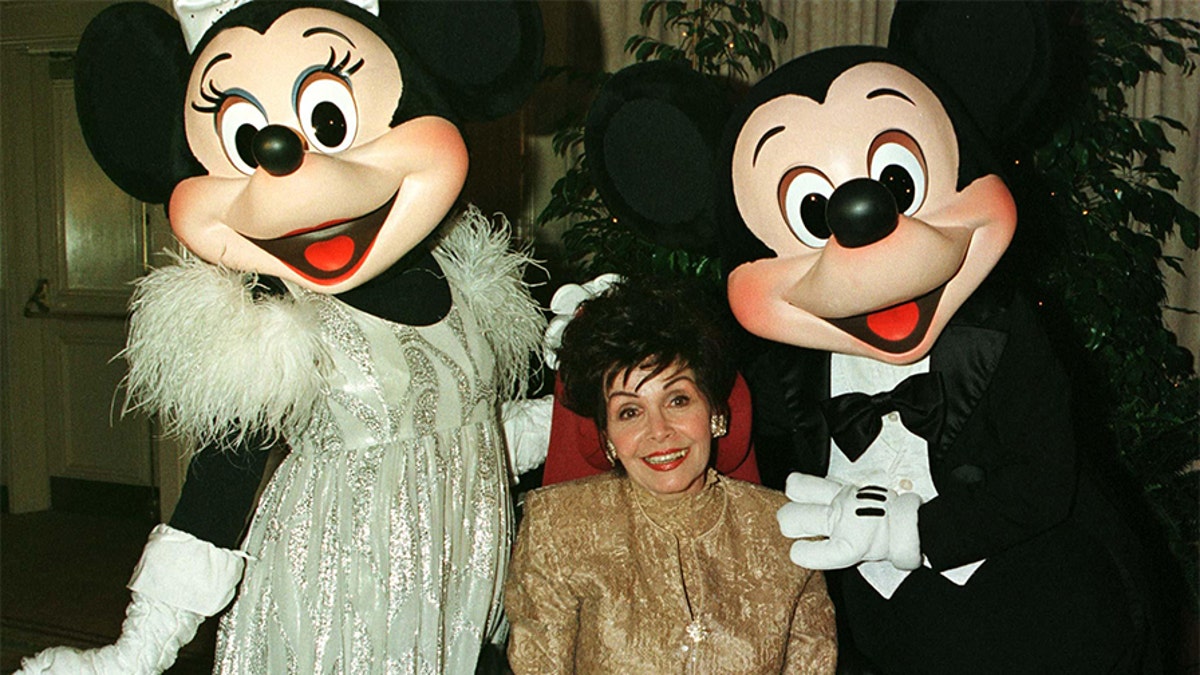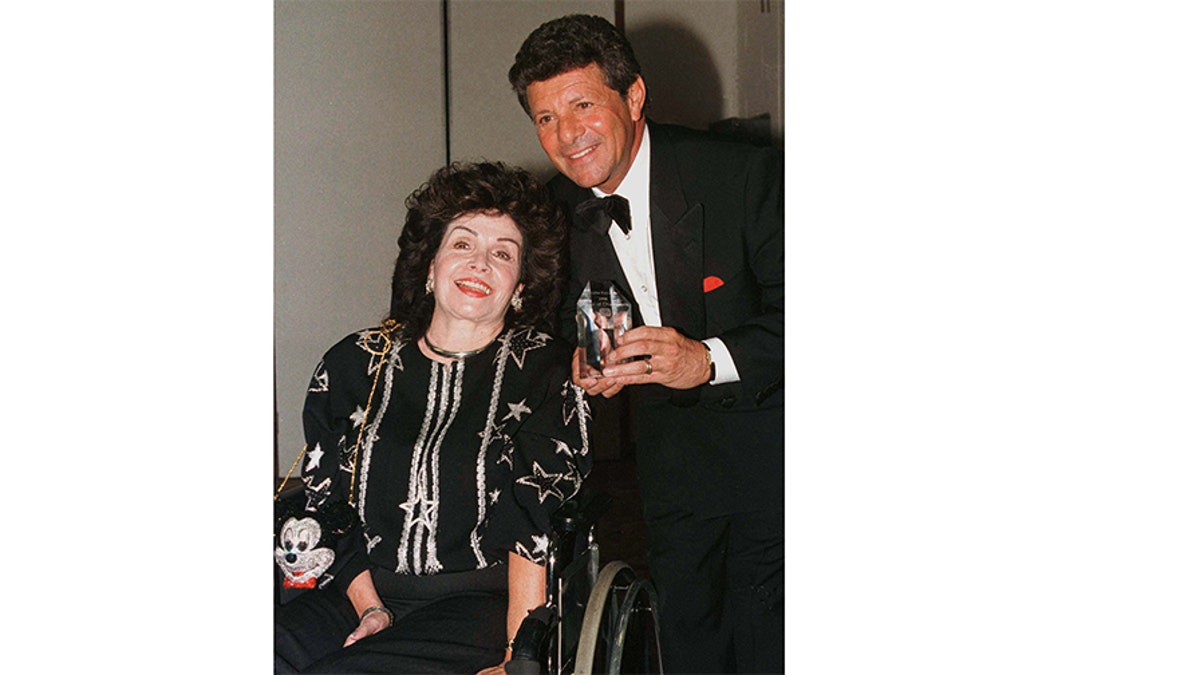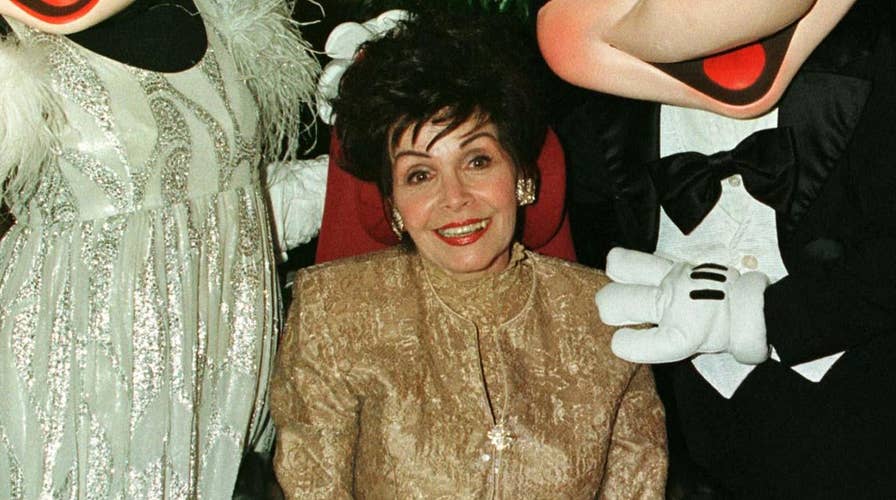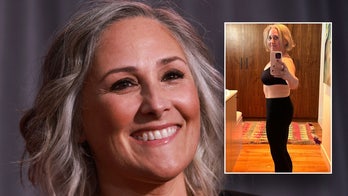Mouseketeer Annette Funicello kept shocking secret
Annette Funicello became America's sweetheart when she joined 'The Mickey Mouse Club' in 1955. But according to her former castmates, she kept her MS diagnosis a secret to avoid hurting her fans.
Annette Funicello became America’s sweetheart when she joined “The Mickey Mouse Club” in 1955. She was 12.
She charmed fans with her sweet, sunny personality on screen, but her cast mates insist she was genuinely like that.
Funicello passed away in 2013 at age 70 from multiple sclerosis or MS, a disease she battled for more than 25 years.
The Hollywood Museum launched a new exhibition, titled “Annette: America’s Girl Next Door,” in honor of her lasting career.
“All of us were picked because we were the kids next door,” fellow Mouseketeer Tommy Cole recently told Closer Weekly. “Annette’s squeaky-clean image wasn’t fake. She was a genuinely nice person.”

Actress Annette Funicello, best known as a member of the "Mickey Mouse Club," suffered from multiple sclerosis. (Reuters)
The 76-year-old also revealed that even after “The Mickey Mouse Club” came to an end in 1959, the cast stayed in touch over the years.
“It didn’t matter where Annette was, the Little League field or the Academy Awards, she was always effortlessly genuine,” added Paul Peterson.
Cole, who would later become a makeup artist, revealed Funicello always kept her fans in mind. When he told his beloved friend to update her famous eyebrows for a new look, Funicello refused.
“She didn’t want to change her image,” he said. “'[My fans are] used to seeing me a certain way,’ she explained. ‘I don’t want to hurt them or have them feel like I’ve done something wrong.'"
Peterson, 72, even shared Funicello may have wanted to keep her MS diagnosis a secret to avoid hurting her fans.

Funicello with Frankie Avalon on Sept. 14, 1998 at the Southern California chapter of the National Multiple Sclerosis Society's Dinner of Champions in Los Angeles. (Reuters)
“She was hesitant to disclose her illness because she was afraid people wouldn’t love her,” said Peterson.
Still, Funicello would come forward in 1992. She hoped her story would help others facing the same health battle.
And even then, Funicello remained devoted to her loved ones.
“My wife went through a back surgery and was in bed for over a year,” said Cole. “Annette was sick and getting sicker, but she called my wife to make her feel better. That’s the kind of person she was.”
“She was still beautiful, even in a wheelchair,” added Mouseketeer Johnny Crawford, 71. “I wish I could talk to her again.”
Funicello is still remembered by fans for her time on the iconic Disney show.
Cast after Walt Disney himself saw her at a dance recital, she soon began receiving 8,000 fan letters a month, 10 times more than any of the 23 other young performers.
Funicello would go on to appear in Disney films, such as “The Shaggy Dog” and “Babes in Toyland,” among others.
She also became a recording star, singing on 15 albums and hit singles, such as “Tall Paul” and “Pineapple Princess.”
Funicello would also captivate audiences in ‘60s teen beach films, such as “Muscle Beach Party,” “Bikini Beach,” and “Beach Blanket Bingo,” just to name a few.
She remembered in 1987: “Mr. Disney said to me one day, ‘Annette, I have a favor to ask of you. I know all the girls are wearing bikinis, but you have an image to uphold. I would appreciate it if you would wear a one-piece suit.’ I did, and I never regretted it.”
Funicello would later admit it became difficult at times to face her illness.
“I get down sometimes — I’m not going to lie to you and say ‘No, it doesn’t bother me at all,’” Funicello told ET at the time. “Some days it does, when you think, ‘Why me? Why me? I’ve never intentionally hurt anybody.' But there’s a reason. There’s a reason for everything. And maybe I can help others.”
Funicello revealed she received plenty of support from fans and friends, including Frankie Avalon, as well as Frank Sinatra and his wife Barbara.
“Now I’m not embarrassed to ask for a wheelchair,” she said. “That’s another plus. So you try to find the good things that come out of anything, and there are good things.”
Funicello would continue to speak openly about the degenerative effects of MS.
“My equilibrium is no more; it’s just progressively getting worse,” she said in 1995. “But I thank God I just didn’t wake up one morning and not be able to walk. You learn to live with it. You learn to live with anything, you really do.”
She added, “I’ve always been religious. This just makes me appreciate the Lord even more because things could always be worse. I know he will see me through this.”
The Associated Press contributed to this report.







